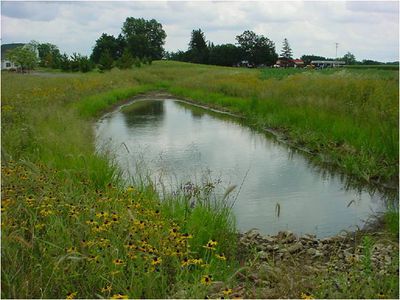
Difference between revisions of "Stormwater ponds"
m |
m |
||
| Line 23: | Line 23: | ||
<div class="center">[[References for stormwater ponds]]</div> | <div class="center">[[References for stormwater ponds]]</div> | ||
<div class="center">[[Supporting material for stormwater ponds]]</div> | <div class="center">[[Supporting material for stormwater ponds]]</div> | ||
| + | |||
#[[Design specifications for stormwater ponds]] | #[[Design specifications for stormwater ponds]] | ||
| Line 29: | Line 30: | ||
#[[Assessing the performance of stormwater ponds]] | #[[Assessing the performance of stormwater ponds]] | ||
#[[Training, certification and accreditation for stormwater ponds]] | #[[Training, certification and accreditation for stormwater ponds]] | ||
| − | + | ||
| − | |||
#[[Additional considerations for stormwater ponds]] | #[[Additional considerations for stormwater ponds]] | ||
| − | + | ||
| − | |||
#[[Fact sheets for stormwater ponds]] | #[[Fact sheets for stormwater ponds]] | ||
Revision as of 14:18, 10 December 2012
Generally speaking, the term “stormwater pond” may refer to any constructed basin that is built for the purpose of capturing and storing stormwater runoff, either temporarily or for an extended period of time, in order to prevent or mitigate downstream water quantity or quality impacts. Several distinct structure types (wet ponds, dry ponds, etc.) are included in this general category, and they are discussed in more detail below.
The sections in this chapter may be viewed as a single page.
